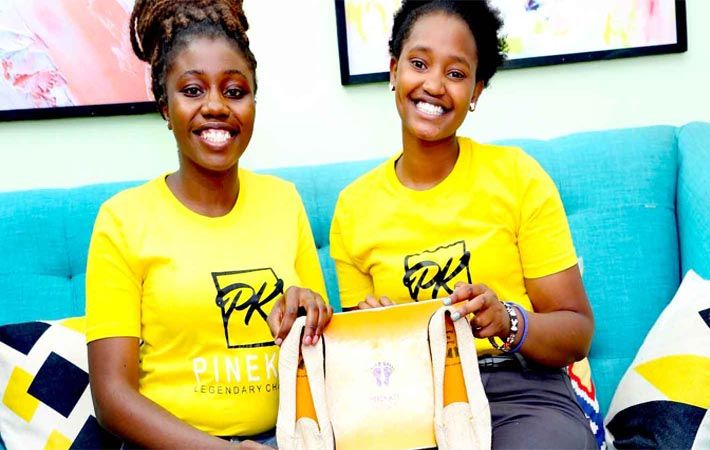The African Development Bank’s (AfDB) Fashionomics Africa initiative recently named a women-led Kenya shoe design house as the winner of its competition to support producers of sustainable fashion. Pine Kazi, which converts pineapple leaf and recycled rubber into fashionable footwear, won the $2,000 Fashionomics Africa competition cash prize.
In addition, the business will have the opportunity to showcase its creation in online events, share insights on key sustainability challenges facing the industry and receive a certificate.The African Development Bank's (AfDB) Fashionomics Africa initiative recently named a women-led Kenya shoe design house as the winner of its competition to support producers of sustainable fashion. Pine Kazi, which converts pineapple leaf and recycled rubber into fashionable footwear, won the $2,000 Fashionomics Africa competition cash prize.#
The brand, co-founded by Olivia Okinyi, Angela Musyoka and Mike Langa, will also have access to media opportunities and receive mentoring and networking opportunities from competition collaborators.
Competition judges said Pine Kazi’s shoes are innovative and sustainable. The upper of the shoe is made from pineapple textile, while the inside is lined with organic cotton. The sole is made from sisal plant fiber, fitted with recycled tyre underneath, according to a AfDB press release.
The Fashionomics Africa contest honours African fashion brands working to change how fashion is produced, bought, used and recycled, to encourage more sustainable consumer behaviour.
A panel of four judges representing the Bank and competition collaborators—the United Nations Environment Programme, the Parsons School of Design and the Ellen MacArthur Foundation—reviewed 110 entries from 24 African countries and selected three finalists: Pine Kazi; CiiE Luxuries, an eco-friendly accessories business based in Abuja, Nigeria; and clothing brand Labake Lagos.
Of the applications, 65 per cent were submitted by women and the businesses were predominantly micro-enterprises (54 per cent), solo entrepreneurs (35 per cent) and small businesses (12 per cent).
The shoes are 100% handmade to reduce carbon footprint and can last three years, Pine Kazi says. The design house said resources would also be divided equally between research and development of natural dyes, the acquisition of professional stylists and the establishment of a centralized production system.
Fibre2Fashion News Desk (DS)
